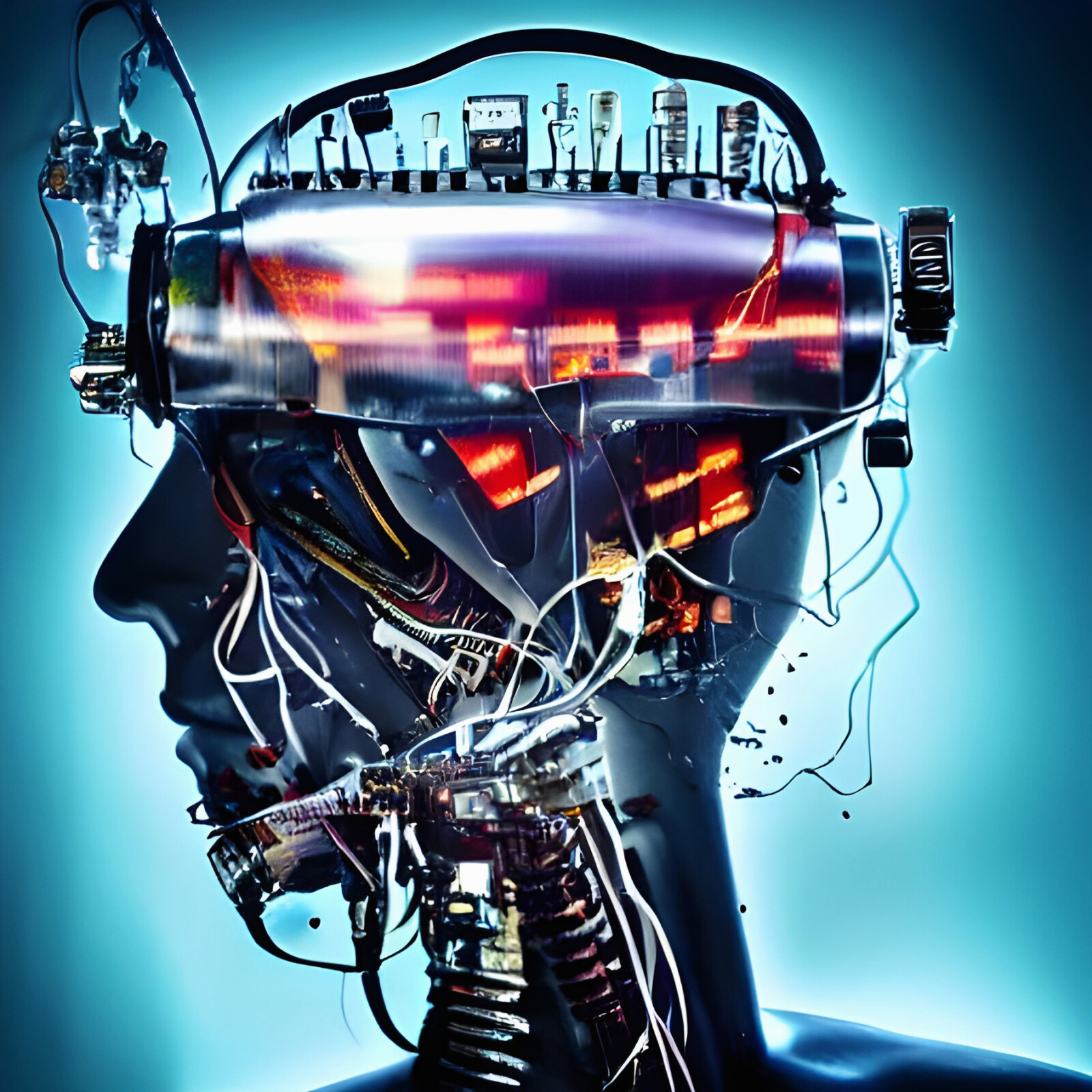ASU Law School Embraces AI Revolution
Arizona State University's Sandra Day O'Connor College of Law is spearheading a digital revolution, integrating Artificial Intelligence (AI) into its admissions process. This article examines the implications of this move, comparing AI policies across law schools, analyzing potential impacts on students, and exploring the future of AI in legal education. We also delve into the ethical concerns of AI use in the legal field, emphasizing the need for balance between technology and human intuition.

Key Takeaways
- ASU Law School allows the use of generative AI tools in law school applications, reflecting their innovative mindset and goal to enhance legal education through emerging technologies.
- The use of AI tools in admissions helps level the playing field for applicants, regardless of their economic situation, and is an extension of the school's existing requirement to certify the use of professional consultants.
- Other law schools, like the University of Michigan Law School, strictly prohibit the use of AI tools in student applications, while the University of California, Berkeley School of Law allows AI for research and grammar checks but forbids its use in exams.
- Prospective law school applicants should be aware that policies on AI usage in admissions vary among institutions, and while AI can assist students during the application process, it should not replace their unique voice, experiences, and perspectives.
Understanding ASU Law School’s Approach to AI
In the context of modern legal education, the approach of the Sandra Day O'Connor College of Law at Arizona State University towards AI demonstrates its commitment to embracing emerging technologies, with the goal of enhancing accessibility and promoting innovation in the admissions process. The ASU Law School's use of AI in admissions seeks to level the playing field for all applicants, irrespective of their economic background. However, the ethical considerations in AI implementation are not overlooked. Applicants are required to certify their use of AI and ensure the truth, accuracy, and completeness of their applications. This strategy reflects ASU Law School's forward-thinking mindset and its willingness to adapt to the evolving technological landscape, while maintaining the integrity of the admissions process.
The Application of AI in ASU Law School Admissions
Applying AI in ASU Law School admissions is an innovative step, but it necessitates careful monitoring to maintain the authenticity and integrity of the application process. The use of AI and the admissions process can be a powerful tool, particularly when used to enhance diversity. AI tools can potentially level the playing field, offering all applicants, regardless of their background, the opportunity to present themselves effectively. However, the possible over-reliance on AI could undermine the unique perspectives and voices of applicants. Therefore, while ASU's adoption of AI in admissions showcases a progressive approach towards technology in legal education, it also highlights the need for ethical guidelines and careful implementation to ensure that AI serves as an aid, not a replacement, in the admissions process.
Comparison of AI Policies in Different Law Schools
Frequently, AI policies in law schools show considerable variations, and the comparison between Arizona State University and the University of Michigan's approach to AI in admissions presents a striking contradiction. While ASU embraces AI assistance, Michigan maintains a rigid stance against it. This divergence reflects a broader trend of inconsistent AI policies in other law schools, with some permitting limited use for research or grammar checks and others outright banning it. The role of AI assistance in law school exams is another contentious area, with many schools yet to formalize their stance. As AI becomes more integral in the legal domain, it is paramount for these institutions to establish clear, ethical policies regarding its application in admissions and examinations.
AI and Its Impact on Prospective Law Students
The incorporation of AI in law school admissions is significantly influencing the application strategies of prospective law students, necessitating a thorough understanding of individual school policies and the ethical use of such technologies. AI's impact on diversity in law school admissions is profound, potentially leveling the playing field by offering access to advanced resources, irrespective of an applicant's economic situation. However, the ethical implications of AI in evaluating law school applications are equally significant. AI may streamline the application process but cannot replicate the unique narratives and perspectives that form the human essence of law. As AI becomes more integrated into the legal field, it becomes crucial for applicants to comprehend its role and limitations, maintaining their unique voice and authenticity in their applications.
The Role of AI in Crafting Authentic Applications
In the realm of law school admissions, the role of AI in crafting authentic applications is becoming increasingly prominent, necessitating a careful balance between technological assistance and the preservation of individual voices and experiences. Tools like generative AI can assist in creating personal statements, but the challenge lies in ensuring the authenticity of these narratives. Furthermore, the use of AI in law school applications has potential to enhance diversity, by providing equitable access to resources across various socio-economic backgrounds. However, it is crucial that while AI aids in streamlining the application process, it does not overshadow or dilute the unique experiences of applicants. Ultimately, while AI can offer valuable assistance, the individuality and authenticity of a candidate should remain paramount.
The Future of AI in Legal Education
While the full potential of AI in legal education is yet to be realized, it is evident that technology will play a significant role in shaping the future of this field, from admissions to coursework and beyond. AI's capabilities extend to legal research, where it can expedite data analysis, case study, and precedent tracking. However, ethical considerations in AI adoption cannot be overlooked. As legal education institutions embrace AI, they must ensure its usage aligns with the foundational principles of law, fostering fairness, justice, and integrity. It's crucial to strike a balance between leveraging AI's efficiencies and preserving the inherently human aspects of legal practice, such as empathy, judgment, and interpretation. Ultimately, AI in legal education represents an evolving synergy of technology and human intellect.
Limitations and Ethical Concerns of AI in Legal Practice
Undeniably, the integration of AI in legal practice poses certain limitations and raises profound ethical concerns that necessitate thorough deliberation and tactful management. As AI applications become increasingly prominent in the legal field, striking a balance between efficiency and ethical standards becomes pivotal. Key ethical concerns in legal AI include ensuring authenticity and human judgment, which AI, despite its advanced capabilities, may fall short of. The limitations of AI in legal practice further encompass its inability to fully comprehend the nuanced human emotions and ethics that underpin legal judgments. Therefore, while AI holds transformative potential for legal practice, it is essential to address these challenges to ensure the preservation of the profession's integrity and public trust. The legal fraternity must tread this technological path with caution, maintaining a human-centric approach in its digitization journey.
Resources for Further Understanding AI in Law Schools
Arizona State University Law School's adoption of AI technologies in their admission process necessitates a deeper exploration of resources for further understanding AI in law schools. This revolutionary step intertwines with the growing prevalence of AI in legal research and case management, warranting extensive study. The use of AI in legal research, advancing beyond traditional databases, can streamline the process, making it faster and more efficient. Similarly, AI's role in case management can significantly improve organization and accessibility of data. However, it's paramount to ensure the ethical use of AI and preserve the human element in the legal profession. As ASU and other institutions navigate this new terrain, resources that illuminate AI application in law schools can provide valuable insights, influencing future policies and practices.
Frequently Asked Questions
How Does ASU Law School Plan to Incorporate AI Into Its Curriculum?
Arizona State University Law School plans to incorporate AI into its curriculum by embracing emerging technologies in legal education. The focus will be on AI Ethics Education, preparing students for future legal implications. The goal is to equip students with knowledge and skills to leverage AI in legal research, case management, and other aspects of practice while maintaining ethical standards. This transformative approach will foster an innovative mindset and keep pace with the evolving legal landscape.
Are There Any Specific AI Tools Recommended by ASU Law School for Use in Admissions?
ASU Law School has not specifically recommended any AI tools for use in admissions. However, they encourage the use of AI applications that promote 'AI Ethics in Admissions' and 'AI Transparency in Selection'. The goal is to ensure fair evaluation, providing applicants an equal opportunity. AI tools should enhance, not replace, the authentic voice and experience of applicants. It's a progressive step towards integrating AI in legal education, acknowledging its future importance in the legal field.
How Does ASU Law School Ensure That AI Usage Does Not Compromise the Authenticity of a Student’s Application?
ASU Law School prioritizes AI ethics and student privacy in its AI-assisted admissions process. The school requires applicants to certify their use of AI, ensuring transparency. This process not only maintains the authenticity of applications but also promotes ethical AI usage. Moreover, the school encourages applicants to present their unique narratives, thereby preserving individuality. In essence, while ASU embraces AI technology, it also underscores the importance of human input and integrity in the application process.
What Has Been the Response of Current Students and Faculty at ASU Law School Towards the Integration of AI in Admissions?
Student reactions and faculty perspectives at ASU Law School towards the integration of AI in admissions have been generally positive. They appreciate the school's innovative approach to leveraging technology while maintaining the authenticity of applications. The faculty views AI as a tool to enhance legal education and students see it as an aid to level the economic playing field. However, they all emphasize the importance of maintaining ethical standards and personal authenticity.
Has the Acceptance of AI in the Admission Process Influenced the Number or Diversity of Applicants at ASU Law School?
The acceptance of AI in the admission process has the potential to influence both the number and diversity of applicants. While a comprehensive AI impact analysis is still underway, initial observations suggest that technological advancement challenges barriers to accessibility, potentially attracting a broader applicant pool. However, the specific effects on ASU Law School's applicant demographics will require detailed study and data analysis over time to accurately ascertain.
Conclusion
The integration of AI in ASU Law School's admissions process signifies a transformative shift in legal education. While it offers potential benefits like fair representation and efficiency, it also raises ethical and authenticity concerns. As the role of AI in the legal field evolves, it is crucial to ensure that its application is guided by sound ethical principles, keeping the human essence of the legal profession intact, thereby shaping a future where technology and legal education coexist harmoniously.

This post has been generated by AI and was not reviewed by editors. This is Not legal advice. Please consult with an attorney.




